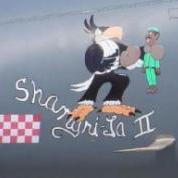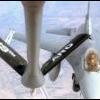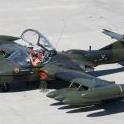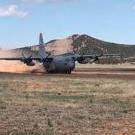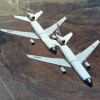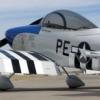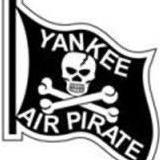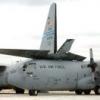Leaderboard
Popular Content
Showing content with the highest reputation on 04/20/2017 in all areas
-
I'll gladly support trimming some military earned benefits (not entitlements thanks) when I start seeing other unearned entitlements (welfare) in society getting trimmed as well.15 points
-
I was a snacko once as a Lt Col, and I was the best goddamn snacko that squadron ever saw.7 points
-
The absolute root cause of so many of the current problems. "Picking" an officer as a captain long before their leadership is truly proven and pushing them uphill regardless of their flaws creates caustic entitled assholes. When we end up with folks who destroy the morale of units, commit sins that are white washed away (right after they hammer a subordinate for the same sin), and show questionable leadership while flying only to have the superiors say "we can't afford for him/her to fail, we have invested too much and we need another GO." This is why the institution is failing and this is why the concerns of the masses do not resonate with most of the current leadership.6 points
-
I guess I'm just more of a pragmatist. Not going to lose my mind when Congress decides to make relatively small changes to a government program, even one I directly benefit from. Crying wolf is all the rage in the hyper-partisan political environment today and I'm not a fan. I'd rather save my outrage for truly damaging cuts and reductions that have no logic to them or don't have a foreseeable benefit. I want vets groups to maintain a higher standard of credibility rather than being just another special interest that scratches and claws for every penny for their particular niche. All that being said, I would rather Congress just appropriate more money from general tax revenues if the GI Bill accounts really need more funding to be sustainable.4 points
-
Like anything worthwhile it starts with a grassroots effort. It took us a year and a half just to get commercial Wi-Fi in our squadron. I'd think AETC would have more motivation than anyone to modernize. Hire a bunch of nerds from Apple and Google, put iPads in everyone's hands, develop apps...you could be filling out gradesheets and 781s on a TIMS app when you're taxiing in. Throw up a playback of the flight on an Apple TV in the debrief. Tons of ways to leverage technology to make us better. But no...we're going to keep paying millions of dollars for f*cking ePex! But I digress.4 points
-
Anybody who came in while the Post 9/11 GI Bill existed would still have the benefit, so nobody is breaking faith. I paid into the GI Bill before the Post 9/11 existed, but then utilized the Post 9/11 because it's a far better deal. Far better to the extent of being a ridiculous benefit. We're $20 trillion in debt and the moment anybody tries to trim a tiny piece of anything everyone loses their fucking minds. Something has to give. I think it's reasonable that the program be fractionally subsidized by the benefactors, just like it was with the GI Bill. This is a perfect example of how government becomes bloated. Once a program exists, you can never get rid of it because of this kind of response. If you use the benefit in a pricey locale and maximized your tuition value out of the Post 9/11, we're talking upwards of $75k in benefit. And for some reason you can transfer that to your family members? The intent behind the (Montgomery) GI Bill was to help soldiers transition back into society by facilitating education that could help them build marketable skills. That was partially a benefit for society-at-large aiming to prevent a bloat of people in their mid-twenties whose only skill was knowing how to kill people showing up on the job market only to get rejected and end up on skid row. How does covering your 2yr-old's college tuition fulfill that goal again? As the benefit exists, I think asking people to foot $1200 or $2400 of that bill is not unreasonable, particularly if it makes it viable into the future. With the exception of your BAH and book allowance, post 9/11 tuition benefits go directly to the institution. Given that it's a government program, payments take a long time to be distributed which will almost certainly be well after your institutions tuition payment deadline. Technically, in that instance you are on the hook to pay the institution by their deadline and when the GI Bill payment processes your account will have a positive balance which the school will refund to you. However, when I used the benefit my institution waived the payment deadline for anybody using the GI Bill because they knew that eventually they'd get payment. That eliminated the need for anybody attending on the GI Bill to have $10k in liquid cash to spare for the 1-3 month differential between tuition payment deadline and the GI Bill payment being distributed. I'd imagine that's pretty standard for any major institution.4 points
-
It's demeaning? Tell that SNAP to quit whining and make corn and god help him if that beer fridge goes empty. I don't give a fuck what his rank or previous experience was. Guess as a Maj I should stop helping take out the trash, carry in beer from the car, and ocassionally make corn...yep that menial shit is beneath me! Unrelated, I Google AFPAK hands to see what this thing was, and it appears to be one of the worst deals out there. ~3 moves in 4 years, a year in one of the shittiest countries on this planet, and 4 years out of the tactical world. This is the furthest thing from "opportunity" I can imagine. Good luck Chang in bagging some poor bastard for this deal.3 points
-
3 points
-
I applied to VLPAD. I was selected....for a command no less. Then AFRC denied my release. I am an 11F, AGR, already locked up an AGR retirement and have no ADSC or GI Bill or any type of debt to AFRC. Unbelievable.3 points
-
Having served staffs from MAJCOM, HAF, to OSD I have not seen the bloating of rated officers that is continually mentioned, actually quite the opposite. We absolutely MUST have a rated influence in the training, equipping and strategy development apparatus, again we MUST have that influence. The bloating I have seen is with civilian and contractors who continuously shuffle and delay paperwork between multiple redundant offices.3 points
-
2 points
-
It's just the frog slowly boiling. Sent from my iPhone using Baseops Network Forums1 point
-
Southwest calls AMC's bluff just weeks before the big meeting? 1,000 hours PIC *preferrered*1 point
-
USERRA is blind to the reason you return to active duty. It doesn't matter. You will keep rights at your civilian job, to include your airline line number.... as long as you do not exceed the USERRA 5-year rule (though some airlines like United will give you more than that).1 point
-
1 point
-
I've harped on this before, but one of the many problems with the current ACP program is that it only--at best--helps keep folks on AD until 20 yrs service (so we can have enough folks for O-4/O-5 command, staff, grey beard line flying, etc.) . . . and it's not even doing this well. The bigger problem, as I see it, is that Big Blue is doing little-to-nothing to keep people on AD past 20 yrs. Given the impact that O-6s and above can have on their commands/the AF, the leadership problem we all like to complain about is likely to get substantially worse. Data points: right now, there are 128 total Command Pilots/163 total pilots (the rest are Senior Pilots--how one gets to 21 yrs of service, without meeting the minimal requirements for Command Pilot rating is beyond me) with 21 yrs of commissioned service in the AF. In other words, these are folks who stayed in past 20 and (aside from passed-over Majors) competed for O-6. At the end of FY13 (just three and a half years ago), there were 374 Command Pilots with 21 commissioned years of service (out of 405 pilots total in that year group). In other words, the number of pilots bothering to stay on AD past 20 and keep the Big Blue ship afloat has dropped by about two thirds in the past 3.5 years. This is across all 11X AFSCs. Certain pilot communities are especially hurting. The '96-ish year group, for instance--the current crop of recent O-6 selects--is healthier on 11Fs than 11Ms. Somehow, this never shows up on the official Air Force website or even Air Force Times, though. Bottom line, whenever you look at stats of how many pilots short a community might be, take a very critical eye. Senior AF leaders are wringing their hands over a 1,500 pilot shortage, with most of that shortage being in the 11F community. Theoretically, this means all the other non-11F communities combined are just a few hundred pilots short. That might be true--it's possible that the total 11B/H/M/S/R population is vaguely close to the raw total required. If the Air Force is comparatively healthy on overall numbers of non-11Fs, the only way I can make the math work is that there are gross overages of pilots in the year groups who haven't yet been offered the bonus. A pilot community where there are overages of Lts, Capts and junior Majs--but almost no senior Majs/Lt Cols/Cols to lead them and/provide staff top cover/fight for new aircraft and/or capabilities/etc.--cannot be healthy. Big Blue must do more to keep adequate numbers of 11Xs in all year groups, leadership levels and 11X communities, if it's going to have a hope of getting healthy. TT1 point
-
No but it was a waste of resources. They sent you to WIC to come back and train young snackos to go to war and not get themselves killed, not do the general's bitch work. I'm sure you felt the same at the time. But I see your point, you probably kept your head down and didn't gripe about it. At least not in public haha!1 point
-
1 point
-
Understood and I confess I don't know all the ins and outs of Guard service and the Airline rules. I brought it up from past experience seeing folks come back on active duty for a few years to get a full time retirement.1 point
-
It's not rocket science man, the SCIF has thick walls for a reason. My squadron on AD was the test bed for EFBs in AFSOC and I believe one of the first if not the first squadron in the AF to be full-up EFB for flight ops. With wifi in the building to wirelessly sync to a pubs server. And we did it with SCIFs in every building and TS being processed on the planes. For something that makes this much sense, the obstacles the OPSEC shoes throw in your path can be overcome, I've seen it up close and personal.1 point
-
That was the goal of the original MGIB, not so much this one IMHO. Initial benefits are a recruitment tool, transfer ADSC is a retention tool, nothing more or less. It's a great benefit FWIW. I wouldn't be opposed to a buy-in if it guaranteed program stability re: future cuts (it can't), or if it expanded benefits (doesn't seem like that's the plan.) So count me opposed to this change although big picture it's a relatively reasonable ask compared to what you get in return and the vet community shouldn't lose its mind at every small change in benefits policy...keeping powder dry and whatnot. Big picture if the program need additional funds to be sustainable I'd greatly prefer Congress allocate that money via the normal appropriations process and spread the cost over the entire tax base rather than the tiny percentage of the population that's using the program. For things you want to discourage (i.e. smoking), use taxes are great IMHO. Look, you can smoke, but it's bad for society as a whole so we should and do tax it quite heavily. But for things you want to encourage like higher educational attainment, we shouldn't be throwing up barriers to using that type of program, even if it's somewhat nominal payments. If just a handful of E-1s decide they can't afford or don't want to pay the buy-in and later end up on the streets rather than in college once they separate, you just blew all of your "savings" and the net benefit for society starts to decline.1 point
-
Yes, at least another decade. We bet the farm on ANA ability to secure the country so we could leave. But it has become clear we put the cart (withdraw deadline) before the horse (conditions on the ground necessary to leave). This is where you get the "Afghan good enough" phenomenon. Hilariously, stop-light charts mapping ANA progress at ISAF went from red to green overnight back when we were hellbent on showing policymakers that, yes, of course, no doubt, the ANA were an outstanding force ready to take the fight to the Taliban.1 point
-
This. A much higher percentage of our society is being paid to do nothing. Why in the hell would we take from the 1% who sign up to put their lives on the line? Bullshit flag: raised (P)1 point
-
Just be sure to keep ahead of your debt. It is far too easy to sluff it off and get into trouble. If you're having any difficulties, contact the companies you owe money to and set up a payment plan. In most states, as long as your making a good faith effort to pay off the bills, it will stop the debt from being sold to a collection company... Cheers! M21 point
-
You mean like certain people holding up 10-page AFIs for several years because they just can't be bothered to read them and concur?1 point
-
Page 49 of attached document Strange Bedfellows in Afghanistan: New Prospects for a Negotiated Settlement with the Taliban FAO Journal_fall16.pdf1 point
-
The United States desperately wants to extricate itself from Afghanistan so it can better focus on a number of more important issues; Islamic State, China, Russia, NK, etc. Afghanistan is virtually ignored within the broader national security community. We're sick of it. There are brush fires elsewhere that need to be addressed before they become major problems. We just don't know how to wrap this thing up. It's a textbook quagmire. It was also a leadership problem, on both the civ and mil side, which stretches back across the past two administrations. I'm hopeful McMaster's deliberate policy review will pave the road for a dignified exit sometime in the next 10-15 years. I can only speculate what it will involve, but it'll probably require a modification of the broader Resolute Support mission. We need to take a long, hard look at how we do TAA and its overall effectiveness. The CT mission is here to stay. We'll start bringing in more regional partners and pray that the Taliban are either compelled or coerced to finally come to the negotiation table. There happens to be a first cohort AFPAK Hand sitting on the NSC no doubt working on the new policy; if his team throws a hail mary and nails it, I like to think the program will finally realize its original purpose of achieving strategic effects. Then, everything will be forgiven.1 point
-
Yup, keep promoting the shiny pennies who "never fail" or have their failures hidden from them so as to protect their precious egos. That way when they are commanders and leaders they have absolutely no idea how to deal with failures because their failures were washed away. Sent from my iPhone using Tapatalk1 point
-
This sounds like the old GI Bill. It's still a good deal regardless. $2,400 for 36 months of benefits? Some of us have gotten real used to post 9/11 type benefits and they've become an entitlement, but we all should have known this type of treatment wouldn't last forever. They've gotta rob Peter to pay Paul. Sent from my SM-G930T using Tapatalk1 point
-
From the article: A draft of the legislation states the buy-in provision would go into effect one year after the bill is enacted and would apply to servicemembers who enlist on or after that date.1 point
-
The words below were stolen from a friend, yesterday started the execution phase of Operation Eagle Claw. If you have never read about what they did it is well worth researching how these braves folks had the "guts to try." "Somewhere around today, in 1980, three MC-130E from the 1st SOS departed Diego Garcia BIOT bound for Masirah Island, Oman. After a brief, 7 hour, flight we would arrive to find two big wooden boxes with stuff dropped off by a C-141 a day or so earlier. In those boxes were tents, cots, and air mattresses seemingly left over from European theater of operations in WW2. Have you ever tried to drive a wooden tent stake into the hard surface of a desert island? The ever resourceful E's converted one of the boxes into an outhouse, so we did at least have that going for us. And so the adventure began."1 point
-
1 point
-
It's not Friday but... Today, April 18th, marks the 75th anniversary of the Doolittle Raid. Sixteen B-25B Mitchell bombers, led by Lt. Col. James H. “Jimmy” Doolittle, took off from the USS Hornet in the early morning daylight on an assignment to strike the heart of Tokyo just five months after the devastating attack on Pearl Harbor. Although the raid inflicted a rather minor level of physical damage on Japan, it gave a much-need boost to morale in the U.S. and to the warfighters. Eighty men volunteered and participated in the raid, and all but three crew members initially survived the mission. Eight airmen were captured by the Japanese in China, and three were later executed. Fourteen full crews, except for one crewman who was killed in action, returned either to the United States or to American forces. The raid played a major role in developing America’s perception of airpower and aviation. But it will also be remembered for its daring, and for the courage of the crewmembers who volunteered to risk their lives for the country they loved. Today, at the National Museum of the US Air Force, retired Lt. Col. Richard Cole, Doolittle’s co-pilot and sole surviving Doolittle Raider, will conduct the traditional “Goblet Ceremony” honoring those Raiders who died the previous year by overturning the Goblet belonging to retired SSgt. David Thatcher. Let's all remember and salute the Raiders, their historic, mission and continue to preserve the legacy of the Greatest Generation. To the Raiders!1 point
-
One might ask why the Air Force has chosen 24 years as make-or-break for general, the earliest of any service.1 point
-
1 point
-
Exactly! If we have a pilot shortage why in god's name are we yanking experienced aviators!? Send some intel or other non-rated folk if this program is that important (to be fair I'm sure it's being pushed from high above HAF..). I know some non rated that would gladly volunteer for this and benefit their career. While we are at it, evaluate the need for a rated dude in various staff positions. I bet most of that could be fulfilled with non rated guys; likewise evaluate whether a 11M could fill a 11F staff billet and vice versa. How did these bean counters pass HS let alone college?1 point
-
I see where you're coming from. However please consider, if you have a young Captain asking for gouge about AFPAK Hands, it'd be much more accurate and helpful in his decision making matrix to say: "AFPAK Hands sucks because there is a high likelihood you'll be undervalued and misused during your deployments" "AFPAK Hands sucks because there is a high likelihood you'll never command in this community" "AFPAK Hands sucks because you'll see the tragedy of our mission in Afghanistan up close" No one says "AFPAK Hands sucks because I didn't get promoted." If they do...f*&k 'em.1 point
-
1 point
-
During my time, AFPAK leadership at the Joint Staff was represented by an O-6 with little ability to influence the program. With no GO top cover, APH was essentially dead on arrival within the Pentagon. There is no universal standard between the service for selecting Hands (besides the subjective platitudes in the CJCSI) and no accountability mechanism for washing out poor performers during spin-up. If you carefully parse the AFPC robot message, you'll notice a line about vetting candidates for suitability; I'm certain suitability in this context only means no QFIs and no obvious fatties. Otherwise, there is no standard. APH selects easy and manages hard, the exact opposite of programs such Olmsted Scholars and (to a lesser extent) RAS. Yes, management shields HPOs from this opportunity. Plenty of stories of shiny pennies having orders drop for APH only to have a GO-level sponsor intervene with AFPC and save the day. The best part of working at the Pentagon is you get to meet all the guys who successfully stiff-armed the assignment and found their way to a normal staff gig. AB - I wanted to follow-up with this portion your otherwise excellent assessment. Soul-crushing staff jobs aren't the sole providence of APH. I watched my neighbor suffer through three painful years on the Joint Staff. It took a tool on him physically and mentally, not to mention his family. He was a great leader and went on to command, but by god did he pay for it during his time in DC. Is it normal for folks to scheme and hustle finding a 3-4 star to make their command dreams come true? We should should be ashamed if someone in our line of work is engaged in this behavior. No APH has made GO, and I've never met one with that ambition.1 point
-
Current AFPAK Hand and while I don't regret volunteering, I cannot recommend this program. It is a great but backwards idea. Instead of taking experts, teaching language and culture and placing them in like billets in the field, the program teaches experts language and culture to fill whatever billet, irrespective of previous experience or validity as most organizations viewed Hands as a free body to fill a slot. This is especially true post 2014 but talking to several cohorts, it has always been applicable and if you look at other programs out here, they all say the same thing. The "real" advising billets are filled by contractors or other programs. For example there is a 11H pilot who instead of flying with the Mi-17s or MD-530s is in targeting. Mi-17s are advised by 6th SOS and MD-530s are advised by contractors. In fact contractors have better personnel management (to fulfill the contract), more continuity (typically stay longer than military tours) and no career penalty (no unchecked the boxes). Or several months ago there was a 12M weapons officer who instead of flying with the C-130s was in policing. C-130s of course are advised by multiple ARC squadrons. I can only think of a few people (voul and non-voul) who actually like their assignment, we do so little advising that it is more than a joke that the most useful language we use is English and I have yet to meet a Hand who honestly thinks this country is going to become better. In exchange all of the carrots mentioned are at best half truths. Many volunteer to have an advantage for FAO (RAS in the Air Force) or FSO (State). However the AF unlike every other service treats RAS as broadening, not a career field change, so you'll still be off track from your normal progression. FSO is obviously not guaranteed and means separating from the AF. Others volunteer for NDU/NIU (IDE in res) but you still need to be "picked up" off your boards for it to count, otherwise it is just another masters. Promotion rates depend on the service, community and board. The other services, especially the Army, use AFPAK Hands to get rid of their worst officers so that affects promotion rates. Within communities, specifically fliers, I can't imagine not flying for four years is an advantage although by the time most have met thier first or second gate they may have already topped out anyway. Boards are all different and you can't compare a O-6 board one year with an O-5 board from another. To be fair the program's performance is average and most of these problems are endemic to everything in Afghanistan. No mission. No personnel management. Even if we were doing out performing the rest of the country, Gen Petraeus himself said (or echoed) that reconstruction and advisement only works when there is a modicum of stability and good governance. I want the program to be better. It was a great idea, I enjoyed learning two languages and don't mind deploying for two years, but there are reasons there is a reported 50% 7-Day Op and 80% separation at the end of the program. SIGAR is finalizing a report on AFPAK Hands, likely recommending to at least change if not end the program, not that we ever concur with those recommendations. Rumor also has it that the Army, Navy and Marines each recommended ending it as well, with only the Air Force (which has the highest volunteer rates) dissenting, not that that will happen either. I'll leave you with excerpt from Foreign Policy https://foreignpolicy.com/2016/10/18/our-generals-failed-in-afghanistan/: "The premier example of this mismatch between what military leadership said we were doing, and what the bureaucracy was actually prioritizing, can be found in the story of the AfPak hands program. The program was launched by the Chairman of the Joint Chiefs, Admiral Mullen, and lauded as the key to shaping Afghanistan by creating a cohort of expert officers from across the services that would have the language skills and experience to build the kind of long-term relationships needed to build an effective Afghan security apparatus. While a priority for the Chairman, the effort was never embraced by the services. Despite the fanfare and stated importance of the program, mismanagement and mis-utilization were rampant as this specialized cadre encountered personnel systems unable to support non-traditional career paths. Caught between career managers that saw the program as a deviation from what officers “should” be doing – leading tactical units – and a deployment system that often led to random staff assignments instead of partnered roles with Afghan leaders, the program quickly became known as an assignment to be “survived” if not avoided altogether. A leaked briefing from the Army G-1, the service’s head personnel officer, to the Chief of Staff of the Army in 2014 confirmed that the AfPak Hands program had become a dead end for military careers. Officers who had participated in the program were being promoted at a fraction of the rate of those who had not. There are only two explanations for this outcome: Either the Army was sending sub-par officers to serve in the program, or officers were being punished for deviating from the traditional career track. Whichever it was, both explanations reveal that the effort to train and advise the Afghans was simply not a priority for the Army. Similar challenges faced those who served on Security Force Advise and Assist Teams. These teams, like the AfPak Hands program, were always ad hoc and widely considered assignments to avoid, as they did not align with traditional career paths. And in the end, the rigidity of the military’s 1950’s-era personnel system simply overwhelmed any desires to prioritize the counterinsurgency mission. Centrally managed and organized around rigid career development templates, this personnel system does a magnificent job of sustaining a peacetime military that is prepared to fight and win tactical battles at the onset of a conventional war, but is not built to go beyond placing square pegs in square holes."1 point
-
Last I checked, most of us signed up to be part of the military; more specifically, the US Air Force, the god damn "Fly, Fight, WIN" set of air warriors who rain death down upon the enemies and oppressors of the democratic free world. This AFPAK hands sounds a LOT like some state department, political BS that most of us specifically did NOT sign up for. If we wanted to be politicians, we would have gone into politics. Instead we are the warriors (not used sarcastically), the "blunt objects", the "politics by other means" type. Take your double-speaking, snake oil salesman pitch elsewhere. You'll find no takers here.1 point
-
I know Chang is just a troll staff weenie, but it does show how out of touch these morons really are with the bulk of us. Spend 2/4 years in the biggest shithole on the planet with no real strategic endgame, just so you can rub elbows with a bunch of O-6s, most of whom got there by sacrificing credibility and warrior ethos in favor of exec jobs and coattail riding. And he sells it like it's a GOOD thing!?! We have some truly clueless management.1 point
-
1 point
-
What a crock. Total number of GOs and O-6's with AFPAK HANDS in their record? Im sure there's some O-6s, I'm doubtful on the GOs. And I don't give enough of a shit to look. You Chang, however, as our lead A-1 koolaide peddler, surely have access to such figures. I'm interested in those numbers. Until then, I'll stand by my intuition and the advice of the actual GOs I trust: pass. Chuck1 point
-
1 point




